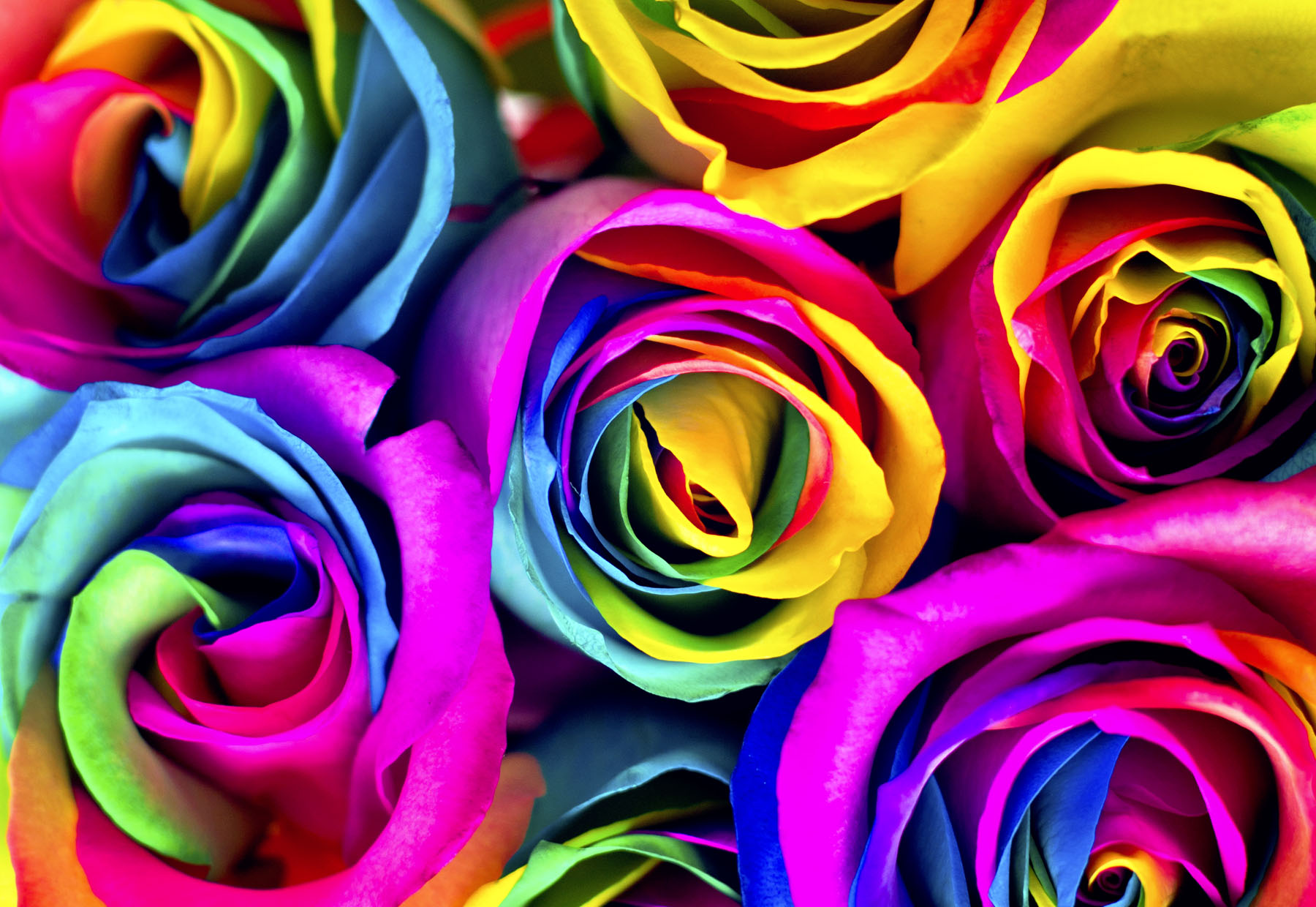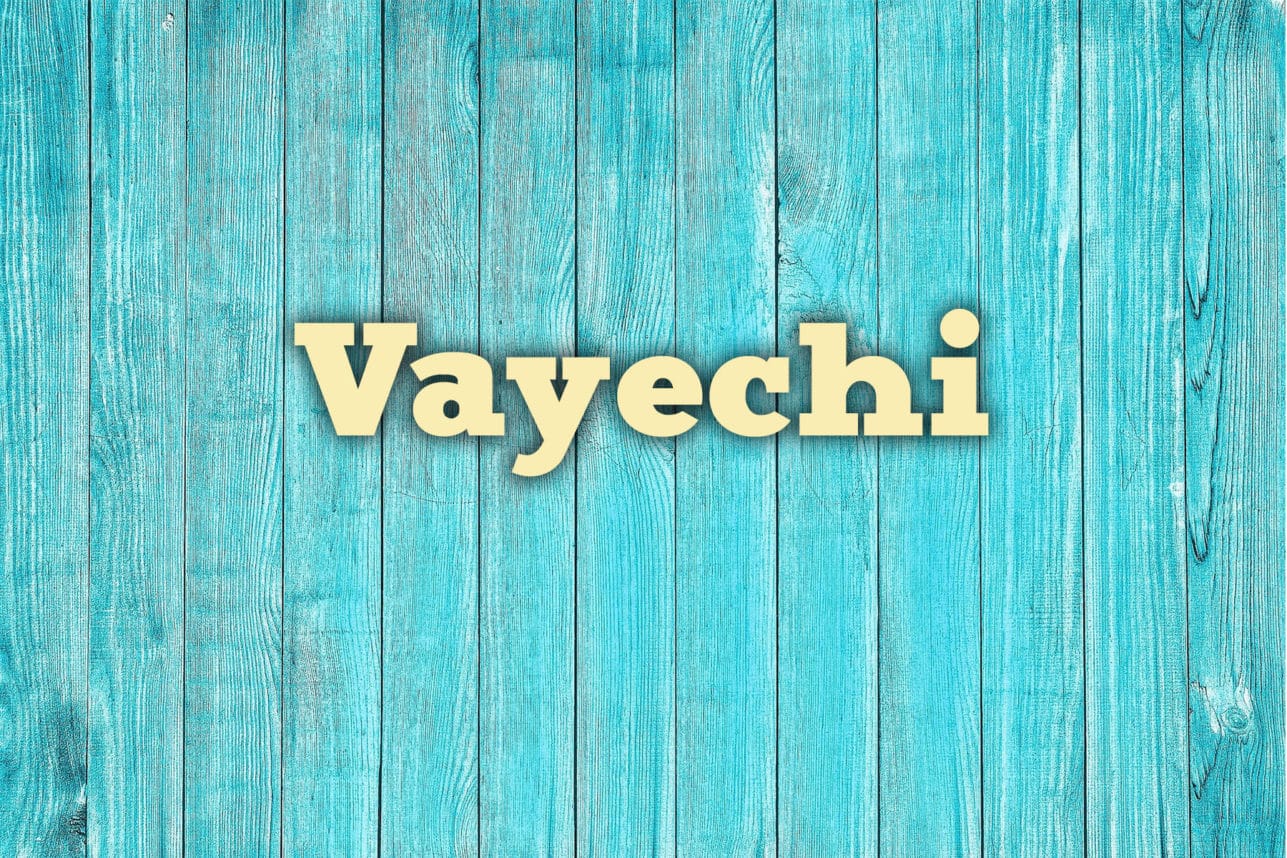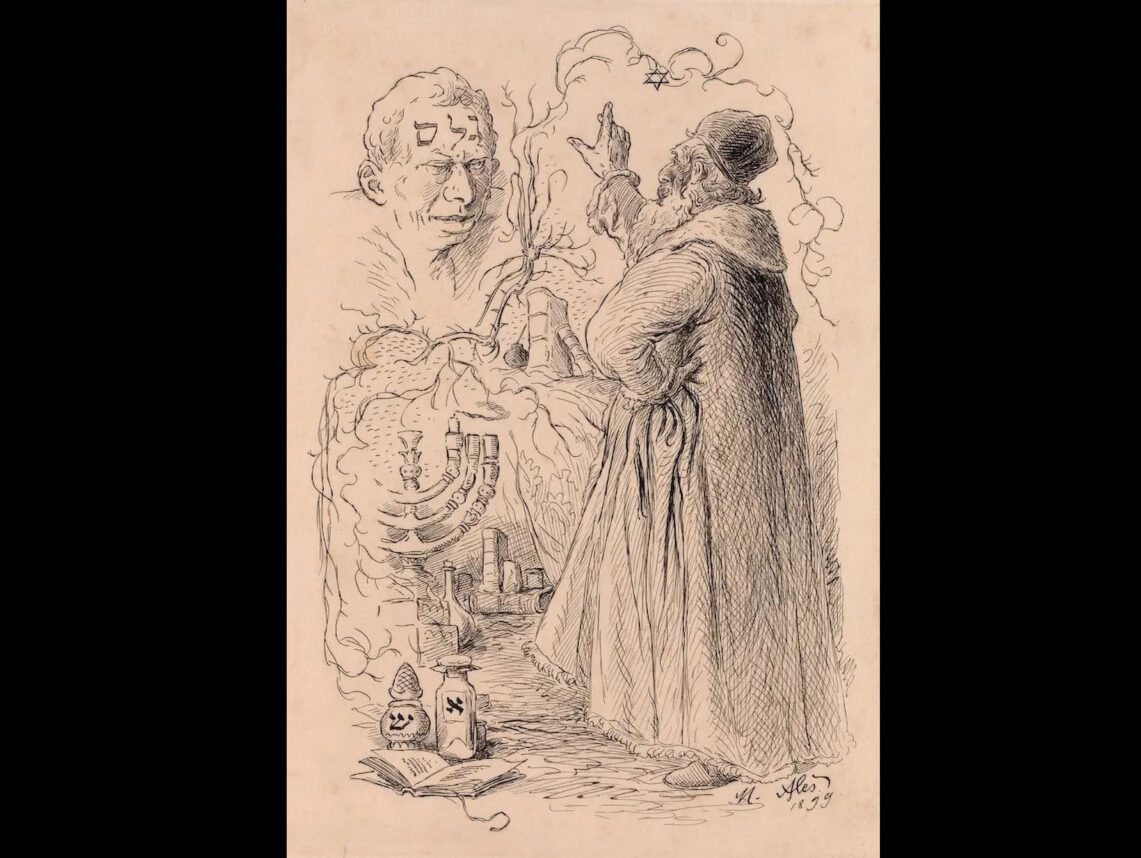
Red roses signify love. Yellow roses are a symbol of friendship. And pink roses represent gratitude. But what does it mean when you give multicolored rainbow roses? That you’re overflowing with emotions — and creativity! Roses are very easy to transform into rainbows of color, and the same dye technique works well with other flowers, such as carnations. I like to experiment with different colors for different holidays, as well.
You’ll love this project, because you get to be a floral artist and mad scientist at the same time.
What you’ll need:
- Glasses
- Water
- Food dye in different colors
- Plastic spoon
- White or cream-colored roses
- Scissors
- Hobby knife (like an X-Acto knife)
- Twist ties
1. Mix the food coloring
For the best results, choose two to four colors for your roses. Dedicate one glass for each color. Fill each glass with water and then add several drops of food coloring. Stir the colored water with a plastic spoon, and keep adding more drops of coloring until the water becomes opaque.
2. Cut the rose stems
Use scissors to cut the rose stems, making the stems all about 10 inches long so the dye will not have far to go to reach the petals. Then, using a hobby knife, slice the stem vertically into segments — so you’ll have one segment for each color (four segments for four colors, and so on). You’ll find this easier if you purchase flowers with thick stems. Your incisions should only cut halfway up the lower part of the stem.
3. Place the stem sections in dye
Place one of your stem sections into each of the glasses of food coloring. Be careful when positioning the stems to fit in the glasses that they don’t snap. You can dye several roses at the same time by tying the upper part of the stems together with a twist tie. The twist tie also keeps the roses upright so they won’t tip over.
4. Be patient
Allow the roses to sit in the dye solution for 24 to 48 hours. Check back occasionally to see the transformation. When your roses are brightly colored, remove them from the glasses of food coloring and display in a vase. Hint: An opaque vase will hide the incisions on the stems.
Jonathan Fong is the author of “Walls That Wow,” “Flowers That Wow” and “Parties That Wow,” and host of “Style With a Smile” on YouTube. You can see more of his do-it-yourself projects at jonathanfongstyle.com.























 More news and opinions than at a Shabbat dinner, right in your inbox.
More news and opinions than at a Shabbat dinner, right in your inbox.